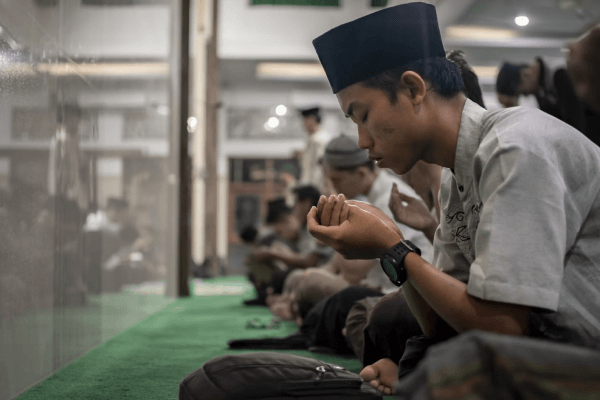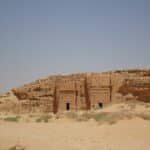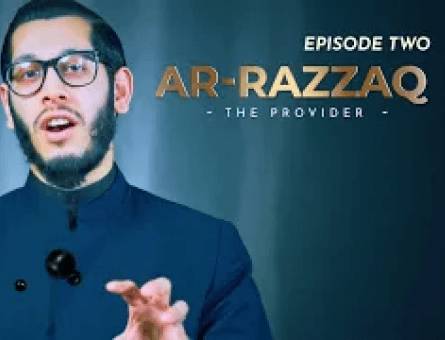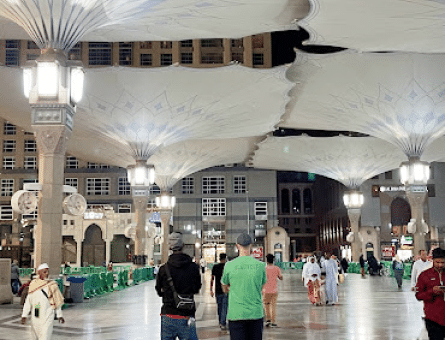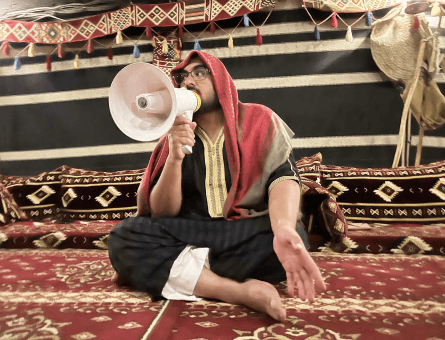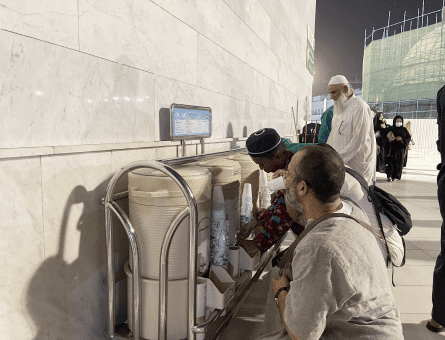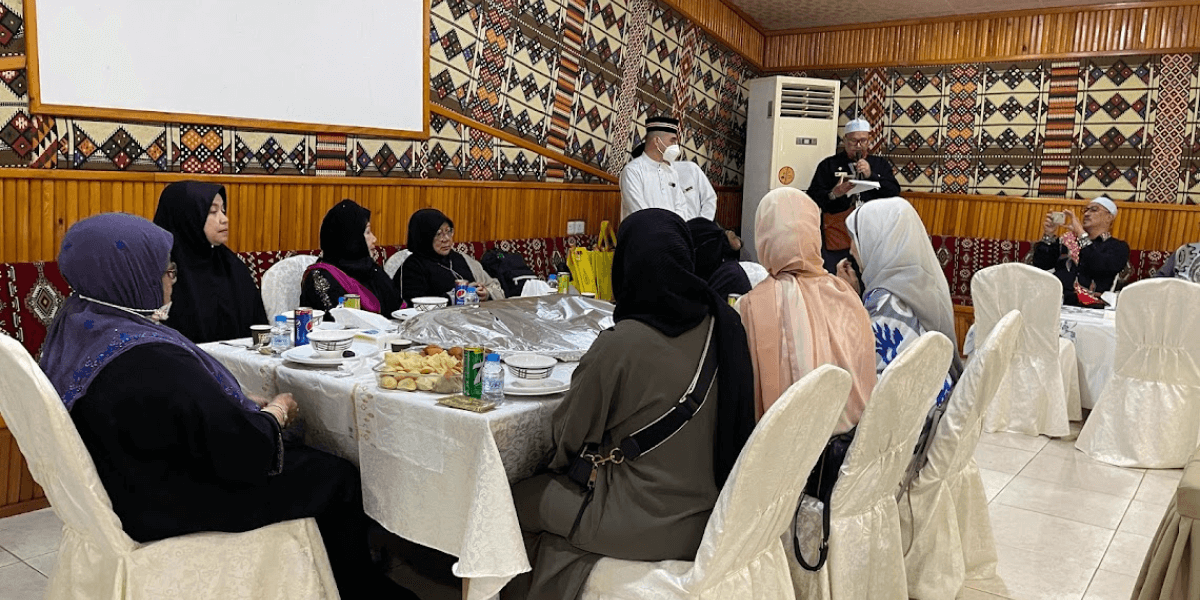Benefits and Rewards of Feeding Others in Islam
Hunger has been a global issue for a long time. Did you know that even today, a staggering 811 million people worldwide do not have enough food to eat? The religion of Islam instructs its followers (Muslims) to feed the hungry and help the poor in order to combat this shocking statistic.
Through the verses of the Holy Quran and hadiths, which are a collection of the actions and sayings of the Messenger (PBUH) of Allah SWT, Muslims are called to help those in need and feed the hungry, regardless of their background, religion or race. Keep reading to learn more about the reward and benefits of feeding others in Islam.
Hadith about Feeding the Poor
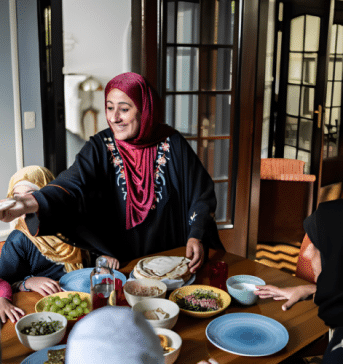 While stating the reward of feeding others in Islam, Abdullah bin Salam (RA) reported, “I heard the Messenger of Allah SWT saying, ‘O people, exchange greetings of peace (i.e., say: As-Salamu’ Alaikum to one another), feed people, strengthen the ties of kinship, and be in prayer when others are asleep, you will enter Jannah in peace.'” [At- Tirmidhi]
While stating the reward of feeding others in Islam, Abdullah bin Salam (RA) reported, “I heard the Messenger of Allah SWT saying, ‘O people, exchange greetings of peace (i.e., say: As-Salamu’ Alaikum to one another), feed people, strengthen the ties of kinship, and be in prayer when others are asleep, you will enter Jannah in peace.'” [At- Tirmidhi]
In another event, Abu Dharr (RA) narrated that the Messenger (PBUH) of Allah SWT said, “When you make some soup, make a good amount by adding plenty of liquid, and give some to your neighbours.” Related by Muslims. [Bulugh al-Maram]
What Does the Quran Say about Serving Others?
In light of serving others, Allah SWT in Surah Al-Insaan of the Holy Quran says:
“The righteous truly drink of a cup tempered with camphor —a fountain from which the servants of Allah SWT drink, making it flow in abundance.
They fulfil vows and fear a day, the evil of which is widespread. And they give food, out of love for Him, to the poor and the orphan and the captive, [saying] “We feed you, for Allah’s SWT pleasure only — We desire from you neither reward nor thanks. Surely we fear from our Lord a stern, distressful day.
So Allah SWT will ward off from them the evil of that day, and cause them to meet with splendour and happiness; And reward them, for their steadfastness, with a Garden, and with silk.” (Surah Al-Insaan, Qur’an 76:5-12)
Allah SWT in the Holy Quran compares the disbelievers and believers by how they treat those who are hungry.
The Almighty states, “(The righteous are those) who give food in spite of love for it to the needy, the orphan, and the captive, [Saying], ‘We feed you only for the countenance of Allah SWT. We wish not from you reward or gratitude.’ On the contrary, the disbelievers will endure the punishment of the Hellfire, saying, ‘Nor did we used to feed the poor.'”
In another verse, Allah SWT said, “Or feeding, on a day of severe hunger, an orphan of near relationship, or a needy person in misery. And then being among those who believed and advised one another to patience and advised one another to compassion. Those are the companions of the right.” (Qur’an 90:14-18)
Rewards for Feeding Others in Islam
Feeding the hungry is one of the most significant actions in Islam. The Messenger (SAW) of Allah SWT guided Muslims to take care of one another by providing them with food and giving Sadaqah. Throughout Islamic history, there are countless events that prove that Prophet Muhammad (PBUH) would never let a person leave his house without offering him food and water.
Therefore, sharing food is an excellent way of bringing the community together and taking care of the vulnerable. To help you better understand the rewards of feeding others in Islam, we have compiled a list of the top five benefits that you can gain, as mentioned in the Sunnah and the Holy Quran:
You will be questioned about it on the Day of Judgment
Allah SWT, on several occasions, has highlighted the significance of feeding the hungry after worshipping and having faith in Him and performing Salah. Therefore, it is not surprising that a Muslim will be questioned about fulfilling the obligation of feeding others on the Day of Resurrection.
The Prophet Muhammad (PBUH) said, “Allah SWT, Mighty and Sublime be He, will say on the Day of Resurrection […] ‘O son of Adam, I asked you for food, and you did not feed Me.’ He will say, ‘O Lord, how can I feed You when You are the Lord of the worlds?’ He (Allah SWT) will say, ‘Did you not know that My servant so-and-so asked you for food, and you did not feed him? Did you not know that had you fed him, you surely would have found that (the reward for doing so) with Me?'” [Muslim]
Note that in the hadith mentioned above, Allah SWT rebukes a Muslim with the powerful phrase, “I asked you for food, and you did not feed me.” If we remember this, every time a hungry person asks us for food, we will never be able to deny them as it is indeed Allah SWT who is asking us to feed this person.
You will be rewarded for acting upon the Sunnah
From supporting the elderly to being a source of comfort for orphans, Prophet Muhammad (PBUH) was the epitome of expressing mercy and love for his people through tangible actions. There are several events in Islam where the Prophet Muhammad (SAW) has encouraged Muslims to show generosity towards those in need. The Messenger (PBUH) of Allah SWT said, “Free the captives, feed the hungry, and pay a visit to the sick.” [Bukhari]
You will reap the reward of Sadaqah Jariyah
When you think of giving food, the first thing that comes to your mind is sharing a meal or donating a food parcel.
However, little do we know that by providing someone with a sustainable form of food (such as planting a tree, poultry, or livestock), you can earn rewards for continuous charity even after you die. This means that every time a person will benefit from your donation (eat fruit from the tree you planted), you will be rewarded for it.
This reward will ultimately lead you to Jannah.
The Messenger (PBUH) of Allah SWT said, “No Muslim plants a tree or sows a seed and then a bird, or a human, or an animal eats from it but that it is a charity for him.” [Muslim]
You will get the reward of the Jannah of Ar-Rahman
While highlighting the significance of feeding others, the Prophet (PBUH) of the Muslim Ummah said, “Worship Ar-Rahman, feed others, spread the (greeting of) peace, then you will enter Paradise with security (salam).” [Tirmidhi]
Prophet Muhammad (SAW) mentioned that there is a special food in Jannah which will only be given to those who feed others. The Messenger (PBUH) of Allah SWT said, “Whichever believer feeds a hungry believer, Allah feeds him from the fruits of Paradise on the Day of Resurrection…” [Tirmidhi]
On another occasion, Ali (RA) reported that Prophet Muhammad (PBUH) said, “Indeed, in Paradise, there are chambers whose outside can be seen from their inside, and their inside can be seen from their outside.” A Bedouin stood and said, “Who are they for, O Messenger (PBUH) of Allah SWT?” He said, “For those who speak well, feed others, fast regularly, and perform Salah during the night while the people sleep.”
You will be protecting yourself from the Hellfire
Giving food to others not only leads to Jannah but also protects Muslims from the Hellfire. This even includes providing food to your own family. Prophet Muhammad (SAW) said, “Whoever has three daughters and is patient towards them, and feeds them, gives them to drink, and clothes them from his wealth – they will be a shield for him from the Fire on the Day of Resurrection.” [Ibn Majah]
On the flip side, denying someone (even animals) food can lead a person to Hell. The Messenger (PBUH) of Allah SWT said, “A woman punished her cat by imprisoning it until it died of hunger and because of it, she entered the Fire. It was said – and Allah SWT knows best – “You did not feed it nor give it water when you imprisoned it, nor did you release it and let it eat from the creatures which creep on the earth.”[Bukhari]
Rewards of feeding a fasting person
 Prophet Muhammad (PBUH), throughout his life, on several occasions, encouraged Muslims to give Zakat on the occasion of Eid ul-Fitar and provide Iftar to Muslims in Ramadan. Some rewards of feeding a fasting person are as follows:
Prophet Muhammad (PBUH), throughout his life, on several occasions, encouraged Muslims to give Zakat on the occasion of Eid ul-Fitar and provide Iftar to Muslims in Ramadan. Some rewards of feeding a fasting person are as follows:
You will be carrying out a Sadaqah
Otherwise known as Sadaqah, charity isn’t only the act of giving something to the poor, but it is also the act of sharing food for the sake of Allah SWT.
Prophet Muhammad (PBUH) said, “What you feed yourself is Sadaqah for you. What you feed your child is Sadaqah for you. What you feed your wife is Sadaqah is for you. What you feed your servant is Sadaqah for you.” [Bukhari]
Therefore, when cooking, always make the intention to eat and share food in the name of Allah SWT with everyone who’s around you.
You will be rewarded for acting upon the best Islamic trait
Abdullah bin Amr (RA) reported, “A man asked the Prophet (SAW), ‘What Islamic traits are the best?’ The Prophet (SAW) said, ‘Feed the people, and greet those whom you know and those whom you do not know'”. [Bukhari]
The Messenger (PBUH) of Allah SWT also said, “The best of you are those who feed the others.” [Ahmad]
Therefore, as Muslims, it is our duty to ensure that we provide the best quality of food (Iftar and Sehri) to those in need, especially during the holy month of Ramadan.
You will earn a reward equal to that of a person who fasts
Prophet Muhammad (PBUH) said that if a person cannot fast, they can earn the same reward by feeding a fasting person. “Whoever feeds the person who is breaking his fast, he will have his reward (for his fasting) without decreasing anything from the reward of the fasting person.” [Al-Tirmidhi, Ibn Maajah]
Sheikh Muhammad bin Saalih Al-Uthaimeen (RA), an explanation of the aforementioned hadith, said, “Those who have the ability should strive to feed those who are fasting (when it’s time to break the fast) either in the masjid or in other places.
This is since whoever feeds a fasting person, will receive the same reward as the one fasting. So if a person feeds his brothers who are fasting, he will receive the same reward as them. Therefore, those whom Allah has granted wealth should take advantage of this opportunity to obtain a great reward.”
All sins will be forgiven
Prophet Muhammad (PBUH) said, “If a person gives Iftar to a fasting person in this month, his sins will be forgiven. And he will be given as many rewards as has that fasting person.” He later added, “The rewards will be given even to a person who gives a date as the Iftar or who provides water to break the fast or who offers a little milk.”
In another instance, Prophet Muhammad (PBUH) said, “He who gives water as Iftar to a fasting person in Ramadan becomes as sinless as the day his mother bore him,” the Companions asked him, “Is it so when water is scarce and precious?” He said to them in response, “The case is the same even if he gives it by a river.”
The more you give, the more reward you will gain
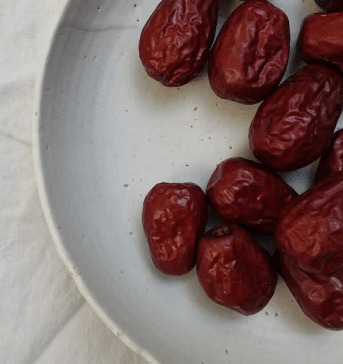 Ramadan is the month to earn great rewards. It is the month when the reward for every good deed is multiplied by seventy. Therefore, do not forget to share your blessings with the less fortunate.
Ramadan is the month to earn great rewards. It is the month when the reward for every good deed is multiplied by seventy. Therefore, do not forget to share your blessings with the less fortunate.
Prophet Muhammad (PBUH) said, “This is the month of consoling and goodness. The wealth of a believer increases in this month. Feeding the fasting person in this month is a means to have his sins forgiven, and he will be safe from the fire of Hell. The one who provides Iftar will gain a reward equivalent to the reward of the one observing fast. There will be no deficiency in his reward.”
Hadiths on feeding a fasting person
Ibn Khuzaimah (RA) reported that Prophet Muhammad (PBUH) said, “Whoever provides Iftar for a fasting person in it (i.e., in Ramadan), then that shall be forgiven for his sins and freedom from the Fire. And for such a feeder shall be the same reward as the one who fasted (whom he fed), without that person’s reward being decreased in the least.” [Ibn Khuzaimah and others]
The Messenger (PBUH) of Allah SWT said, “Whoever feeds the person who is breaking his fast, he will have his reward (for his fasting) without decreasing anything from the reward of the fasting person.” [Al-Tirmidhi, Ibn Maajah]
In another narration, it is mentioned that Prophet Muhammad (PBUH) said, “The one who feeds a fasting person with permissible food or water, the Angels will seek forgiveness for him during Ramadan, and Jibril (AS) will seek forgiveness for him on the Night of Power.”
What is the highest form of reward in Islam?
Sadaqah Jariyah is investing in the Hereafter, and there is no better form of getting the reward in Islam than feeding others. Allah SWT described the people who feed the needy as those who will inherit Jannah and be amongst the companions of the right.
Prophet Muhammad (PBUH) also said that whatever is given in charity (zakat and Sadaqah) or fed to the poor is an eternal reward and will protect Muslims from the Hellfire on the Day of Judgment.
What did Prophet Muhammad (PBUH) say about feeding the poor?
Abu Hurairah (RA) narrated that Prophet Muhammad (PBUH), on being asked about the reward of feeding the poor in Islam, said “Allah SWT will say on the Day of Resurrection ‘…O son of Adam, I asked you for food, and you fed Me not.
He will say: O Lord, and how should I feed You when You are the Lord of the worlds? He will say: Did you not know that My servant So-and-so asked you for food and you fed him not? Did you not know that had you fed him, you would surely have found that (the reward for doing so) with Me?'”
Summary – Rewards of Feeding Others in Islam
Food is one of the basic necessities of life. Keeping all the rewards of feeding others in mind, we must try our best to provide food and water to those in need, especially those living in our neighbourhood.
One thing that you can do in the holy month of Ramadan is you can create a group, ask everyone in your family or neighbourhood to contribute, and use that money to feed those who are vulnerable as it is one of the most rewarded acts in Islam.
Just remember that at the end of the day, it is only you who can make this world a better place, and this can only be done by ensuring that everyone around you sleeps with a full stomach.
Through His Names
New course with
Ustadh Shabbir Hassan




